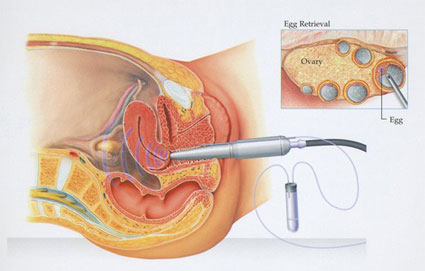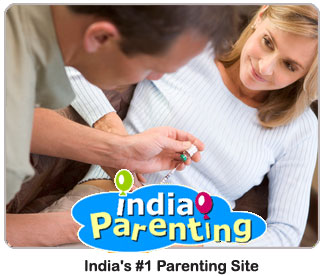A proper screening procedure is to be followed for selecting an egg donor as healthy egg will result in successful conception. Various tests are conducted on the prospective egg donor to rule out any problems. All these tests are aimed at getting the best egg. Here is a brief on the selection procedure for egg donor. When a commissioning couple decides to select an egg donor, they can employ several processes to obtain the right person.Interviews can be carried over the phone. They can ask the woman to fill in an application.Recommendations from acquaintances and clinics can also be considered. Then after a woman is selected as the egg donor she is expected to clear a few medical and psychological tests. During and after the screening process, the prospective egg donor is made aware of the various procedures and possible risks involved with the egg donation process. In this articleMedical ScreeningSmoking, Alcohol and Drug AddictionScreening for Infectious DiseasesScreening for Genetic DiseasesScreening for HIV InfectionProcedure for Screening an Egg Donor Given below are the brief details of the screening process. Medical Screening This is basically a physical examination which includes a thorough pelvic test as well. The hormone levels are checked through a blood test. The status of the uterus, ovaries and the other associated pelvic organs are checked through the Ultrasound. It can be noted here that the ultrasound in this case does not involve X-rays but is done through sound waves. If the egg donor has any dormant health problem, it can be reveled through this test. All these tests are followed by a thorough medical and psychological documentation of the prospective egg donor along with her close blood relatives, and also her husband or partner. Smoking, Alcohol and Drug Addiction - Information is gathered pertaining to her habits with cigarettes and drinking. Details of prescription and illegal drugs are also questioned and examined. The fertility clinic are often found to conduct unscheduled drug tests after the screening or just prior to the donation process, so as to ensure all safety for the embryo and the actual mother. Screening for Infectious Diseases - Screening is also conducted for infectious diseases. The pelvic examination is conducted by taking a tiny scrape from the cervix and tested for Chlamydia and Gonorrhea. Tests for syphilis, Hepatitis B and C along with HTLV-1, which is a virus causing certain cancers are tested through the collection of blood samples. Screening for Genetic Diseases - Screenings for genetic and inherited diseases are also carried out. It is important to ensure that the baby is not born with any birth defects. It is checked whether the donor has herself, her near blood relatives like siblings or any of her children were born with birth defects like cleft lips, spina bifida or any type of heart defect. It is checked whether the donor is a carrier of genetic disorders like Huntingtons disease, hemophilia, Tay Sachs disease or sickle cell anemia. The egg donor should be in a stable relationship and not suffered from physical, emotional and sexual abuse. She should not have considerable stress in her life. Finally it is vital that the woman gets a thorough understanding of the egg donation process. Screening for HIV Infection Certain aspects of sexual habits and other factors that expose the risk of infection of HIV are checked. Apart from the regular HIV test, it is also important to ensure that the donor is not exposed to the risk. The woman is barred from donating her eggs if she has injected certain drugs or had been engaged in prostitution within the past five years. If the woman has undergone an acupuncture treatment, done a tattoo or body piercing that have suspect sterile procedures, or have been diagnosed with syphilis in the past year, she cannot be considered as an egg donor. If the woman had over one sexual partner over the last six months, she becomes ineligible as an egg donor.
A proper screening procedure is to be followed for selecting an egg donor as healthy egg will result in successful conception. Various tests are conducted on the prospective egg donor to rule out any problems. All these tests are aimed at getting the best egg. Here is a brief on the selection procedure for egg donor. When a commissioning couple decides to select an egg donor, they can employ several processes to obtain the right person.
- Interviews can be carried over the phone.
- They can ask the woman to fill in an application.
- Recommendations from acquaintances and clinics can also be considered.
Then after a woman is selected as the egg donor she is expected to clear a few medical and psychological tests. During and after the screening process, the prospective egg donor is made aware of the various procedures and possible risks involved with the egg donation process.
Procedure for Screening an Egg Donor
Given below are the brief details of the screening process.
Medical Screening
This is basically a physical examination which includes a thorough pelvic test as well. The hormone levels are checked through a blood test. The status of the uterus, ovaries and the other associated pelvic organs are checked through the Ultrasound. It can be noted here that the ultrasound in this case does not involve X-rays but is done through sound waves. If the egg donor has any dormant health problem, it can be reveled through this test.
All these tests are followed by a thorough medical and psychological documentation of the prospective egg donor along with her close blood relatives, and also her husband or partner.
Smoking, Alcohol and Drug Addiction -
Information is gathered pertaining to her habits with
cigarettes and
drinking. Details of prescription and illegal drugs are also questioned and examined. The fertility clinic are often found to conduct unscheduled drug tests after the screening or just prior to the donation process, so as to ensure all safety for the embryo and the actual mother.
Screening for Infectious Diseases -
Screening is also conducted for infectious diseases. The pelvic examination is conducted by taking a tiny scrape from the cervix and tested for
Chlamydia and
Gonorrhea.
Tests for syphilis, Hepatitis B and C along with HTLV-1, which is a virus causing certain cancers are tested through the collection of blood samples.
Screening for Genetic Diseases -
Screenings for genetic and inherited diseases are also carried out. It is important to ensure that the baby is not born with any birth defects. It is checked whether the donor has herself, her near blood relatives like siblings or any of her children were born with birth defects like cleft lips, spina bifida or any type of heart defect. It is checked whether the donor is a carrier of genetic disorders like Huntington's disease, hemophilia, Tay Sachs disease or sickle cell anemia.
The egg donor should be in a stable relationship and not suffered from physical, emotional and sexual abuse. She should not have considerable stress in her life. Finally it is vital that the woman gets a thorough understanding of the egg donation process.
Screening for HIV Infection
Certain aspects of sexual habits and other factors that expose the risk of infection of HIV are checked.
Apart from the regular HIV test, it is also important to ensure that the donor is not exposed to the risk. The woman is barred from donating her eggs if she has injected certain drugs or had been engaged in prostitution within the past five years.
If the woman has undergone an acupuncture treatment, done a tattoo or body piercing that have suspect sterile procedures, or have been diagnosed with syphilis in the past year, she cannot be considered as an egg donor.
If the woman had over one sexual partner over the last six months, she becomes ineligible as an egg donor.































